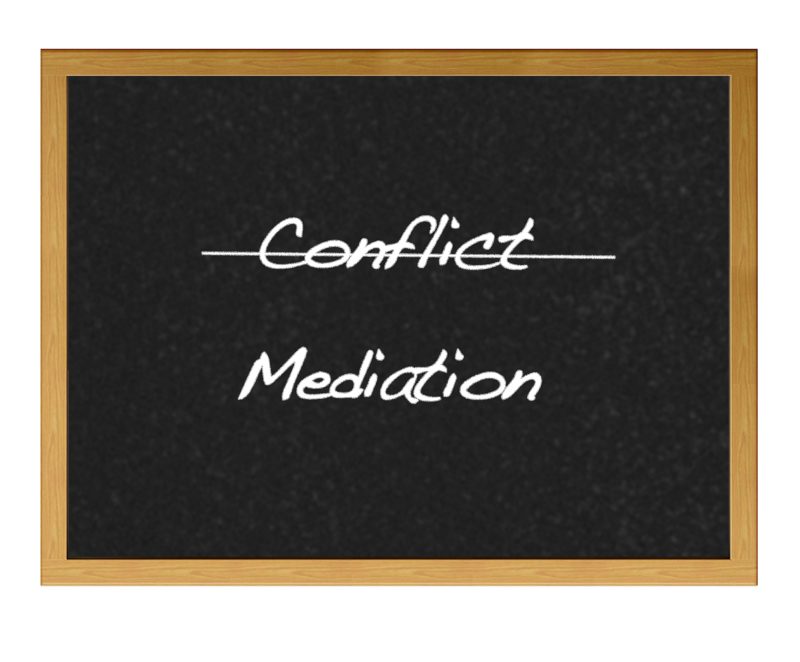One important benefit of divorce mediation is the parties control the tempo of the process. Usually the divorcing couple can sustain a tempo or time line that works adequately for both of them.
Unfortunately, there are occasions when the parties are not in alignment on the pace. This imbalance can carry a huge emotional charge which can lead to derailment of the entire mediation process. It is up to the mediator to help the parties sort out their differing expectations. The goal is to find a workable tempo between keeping things moving and moving too quickly.
There are two important factors to consider when clients are unhappy with the rate of progress. They are:
1. Alternatives to continuing with the mediation
2. Understanding the reason behind the delay itself
Let’s look at both.
Are There Alternatives to Divorce Mediation if Your Mediation is Moving Too Slowly or Too Fast?
Successful divorce mediation results in an uncontested divorce proceeding. If one party is upset about the slow pace of the mediation process, the other option is usually to go to Court and have the Judge render a ruling after a hearing or trial. This creates a contested divorce proceeding.
However, unless the matter is true emergency, a Family Law Judge will not be able to hear a serious matter for months. Thus, mediation is the expeditious path toward resolution when compared to fighting in Court.
The other alternative to one-on–one mediation is for the clients to hire lawyers and pay them to negotiate on their behalf instead of resolving matters through mediation. The cost of bringing lawyers to the forefront on an issue is a major deterrent.
Once the cost and delay of litigation is compared to mediation the parties’ expectations tend to be more realistic. They see how mediation is reasonably meeting their needs. It also leads right into a review of the underlying reasons for the imbalance itself.
What Are Possible Reasons for a Mediation Delay?
I have identified seven most common reasons for having tempo or speed issues.
There is any number of reasons why one party is not in alignment with the pace of the other in their divorce mediation. These difficulties are not uncommon. The emotional friction caused by these differing expectations is driven by motivations underlying the divorce process itself and if not successfully resolved make the entire process more difficult. I will present some possible solutions below but first here are seven of the most common reasons there might be friction about the rate of progress:
1. Emotional reasons – This is quite common in divorce mediations. It occurs when one party is not as emotionally ready to accept their divorce as their ex-spouse. The grieving spouse tends to slow the process as they deal with their feelings at the loss of their marriage. The flip side also happens. One party is anxious to move on with their life and keeps pressing the pace. Their motivation is because of their discomfort at being in contact and communication with a partner in a relationship they want to end.
2. Legitimate work disruption – e.g. pressing matters outside of the divorce mediation itself: deadlines at work, work-related travel or the need to find a new job, or someone (even the mediator) has a vacation scheduled or holiday plans.
3. Outside Relationship Pressure – e.g. when one party is already in a new relationship and their new sweetheart is not happy with the divorce “dragging on”. This tension causes one party to urgently want things to wrap up. The now rejected soon to be ex-spouse knows all of this and is unmotivated to accelerate the process.
4. Pending Legal Proceedings or Lawyer Consultations – If a Court hearing is looming in the background, then one party might be  urging for haste in the mediation hoping for a settlement to avoid Court. The other may prefer to delay out of spite or because they secretly are reluctant to settle and would rather a Judge make the decision. If the parties are consulting with attorneys about possible outcomes in their Court hearing, this too can create difficulties. When one party meets with their lawyer promptly and the other party’s lawyer is unavailable the delay causes tension and anxiety.
urging for haste in the mediation hoping for a settlement to avoid Court. The other may prefer to delay out of spite or because they secretly are reluctant to settle and would rather a Judge make the decision. If the parties are consulting with attorneys about possible outcomes in their Court hearing, this too can create difficulties. When one party meets with their lawyer promptly and the other party’s lawyer is unavailable the delay causes tension and anxiety.
5. Tactical – This is not always easy to spot. It arises when one party believes they have an advantage in the overall separation and they try to manipulate the mediation process accordingly. e.g. one party has free family healthcare coverage as an employment benefit and the other spouse will have to buy health insurance once their divorce is finalized. In this instance, the second party may delay to extend their health coverage benefits. Another imbalance can occur when one party is living in the family home while the house is being sold and they impede the sale process to avoid paying rent or moving.
6. Psychological – Couples have relationship dynamics which occasionally play out during their divorce mediation.
A common example is when one spouse seeks to extract revenge on their ex-spouse for divorcing them in the first place. They resist reasonable offers of compromise and refuse any accommodation in the process because their somewhat hidden agenda is to be punitive.
Another example is where a dad wants full visitation with his children while the mom considered him all but unavailable during the marriage when it came to childrearing responsibilities. Her resentment at the sudden change in his approach may cause her to resist a fair compromise on shared custody. She may have a valid point or perhaps he believes he can finally enjoy being with his kids without what he sees as her hovering, interference and control. As you can see the psychological dynamics and can be complicated.
7. Power Dynamics – Some couples avoid power struggles in their marriage because the less assertive spouse acquiesces on decisions to minimize strife in their marriage. But when they are no longer partners with a common agenda this may cause difficulties in a divorce. Sometimes the less assertive ex-spouse has difficulty making their own decisions because they have relied on their more assertive spouse to decide almost everything during their marriage. They tend to hesitate and second guess themselves. The more assertive spouse is used to making decisions at their own pace and can become impatient when this happens.
Alternatively, a formerly less assertive spouse may be practicing their newly uncovered self-empowerment by not letting their now ex-spouse ever dominate a discussion or overpower them for a decision again. As a result they take more time to consider a matter or make up their mind than their ex-spouse is used to. The dominant spouse is angry with the formerly passive spouse’s autonomy and takes that frustration out on the overall mediation process.
There are, of course, many other reasons creating hard feelings about the tempo or speed of the divorce mediation process. Resolving the friction over the pace of the mediation requires a realistic evaluation of the needs of the parties so a mutually satisfying resolution can be achieved.
Solutions to Consider
Lack of alignment over the speed of divorce mediation is fairly common. Here are some strategies I use to resolve the difficulties caused by misalignment between the parties.
First we review alternatives and determine if mediation offers more benefits than detriments to the overall goal of ending their marriage. Then we identify the stated reasons which are causing the difficulty. Sometimes they are the actual reasons but just as often there are other motivations suspected by the parties. Either way, we address them openly together.

Often, our conversation simply leads to an agreement on the rate of progress or identifies steps toward accommodation of the other parties needs. If the parties cannot come to an accord of the tempo, then I propose their taking turns in bringing up issues which are important to them. That creates a sense of balance and fairness as we proceed with the mediation.
If there is an advantage to one side due to the mediation process unfolding a certain way, we discuss how to mitigate it. We lessen the harm if it is occurring or we trade off another benefit on some other issue if we can find one.
When a specific single legal issue seems to stall the mediation process we negotiate a firm schedule to address it with agreed accountability consequences. For instance the parties need an appraisal of their home or documentation about their retirement accounts. We mediate together to identify a) what information will be needed, b) where it can be obtained, c) who will be responsible to obtain this information, d) by what means and decide e) how long it should reasonably take.
While the data needed to resolve the single issue are being gathered we mediate on other key issues as they come up. I take care to make sure the mediation sessions are addressing concerns which are important for each party.
Summary
ALSO READ: What Is the Divorce Mediation Process?
In the end, the practice of mediation is an art. There is no set template which will work for all couples in all situations. However, with a skilled mediator and parties with goodwill underlying their participation we will find a solution to the difficulties created by different expectations about the tempo of the divorce mediation process.
I practice mediation in all 50 states and have not only handled thousands of mediation cases over the past 20 years but have taught seminars and appeared on numerous panels sharing my expertise.
Feel free to call me or use my contact form to request a free consultation to find out if your situation can be positively affected through mediation.






